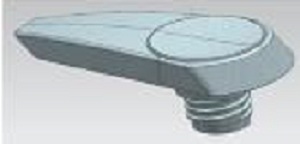|
|
|
|
 |
 Absolute safety of drinking water in PET bottles assured even after repeated use Absolute safety of drinking water in PET bottles assured even after repeated use |
|
 |
|
| |
The past several months hoax messages regarding PET bottles are
being flashed on the world wide web (internet). An article alleges
that PET bottles used for soft drinks and mineral water could cause
cancer due to breakdown of the bottle material to DEHA (considered
carcinogenic). The article claimed that repeatedly washing and rinsing
the bottles could cause the plastic to break down and allow a carcinogen
to leach into the water that people drink. This message apparently
written by officials of the Queensland Department of Natural Resources
and Mines in Australia was on the Internet and widely circulated as
email, particularly in Bangkok. The message, which is an apparent
hoax, falsely claimed the plastic bottle in question is made of chemical
named ``Poly Ethylene Terephthalate'' (PET), which contains “Di
Ethyl Hydroxyl Amine or DEHA, which is considered a carcinogen.
The claim drew a quick response from Australian Bottled Water Institute
Inc. and Australian Soft Drinks Association Ltd., which issued a
joint statement insisting plastic bottles can be reused without
any risk, even though the bottles are intended for single use and
for easy recycling afterward.
"Contrary to some misinformation, there is no Di Ethyl Hydroxyl
Amine in PET. Also, DEHA, as incorrectly claimed, is not a known acronym
for that chemical," the statement from Australian Bottled Water
Institute Inc. and Australian Soft Drink Association Ltd. said. PET
bottles are made wholly of polymer Polyethylene Terephthalate, which
is completely safe. The term DEHA actually stands Di Ethyl Hexyl Adipate,
which is never used in PET. The statement further said PET bottles
are not designed to withstand high-temperature washing, abrasion or
scrubbing. However they could be re-used, provided consumers follow
hygienic practices. It warned that leaving partly drunk bottles in
cars could encourage the growth of bacteria if there were adequate
nutrients present in the water, such as bits of food.
Previous Article
Next Article
Tell Us What You Want

Moulds for lotion pump
| | | | | | | |
